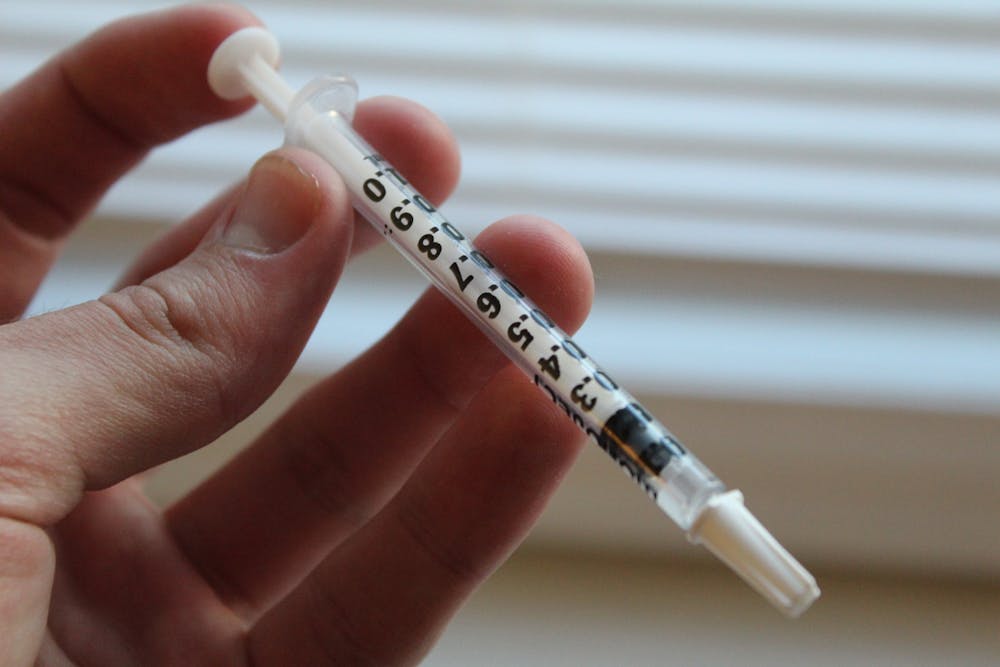On Sept. 15, President Donald Trump stated that a vaccine for COVID-19 could be ready within four weeks — a claim that was quickly denounced by drug industry executives and other government officials. Well, it’s been four weeks, and he was completely wrong. But his statements have raised questions regarding the availability of such a vaccine, and whether or not it can be trusted.
Like most other medical products, vaccines are tested in three phases. The first phase is an assessment of how the body metabolizes the drug, to ensure that it is not toxic. This phase usually involves only 20 to 80 healthy subjects. From there, the drug moves into Phase 2, which tests a range of doses of the vaccine and looks closer at the short-term side effects. Finally, Phase 3 is a randomized, controlled trial to test whether the vaccine is safe and effective enough for widespread use, which involves testing tens of thousands of patients.
Although it may seem like this research is only being performed by large pharmaceutical companies, this research is happening right at our doorstep. UNC is working on vaccine trials of its own, as well as implementing treatment trials — which involve investigational medication, observational studies and studying the impact of COVID-19 on health care workers. Researchers have been collaborating for several months to share research and knowledge in order to develop the most effective vaccine possible.
At the moment, 45 vaccines are in human clinical trials and 91 are in animal investigation in order to create a vaccine by early next year. Ten of these vaccines are in Phase 3, awaiting success and the approval to move into limited use. Additionally, six vaccines — none of which are being developed in the United States — have been approved and are being implemented with limited use in countries such as China, the United Arab Emirates and Argentina.
Eli Lilly and Company, a well-known pharmaceutical firm, halted its Phase 3 trial this week, releasing a statement that it had been paused “out of an abundance of caution” over a potential safety concern. Similarly, Johnson & Johnson put its 60,000-person Phase 3 vaccine trial on a “study pause” due to an “unexplained illness” in a study participant. The illness is being reviewed and evaluated by an independent data and safety monitoring board, as well as the company’s clinical and safety physicians.
In contrast, AstraZeneca’s joint trial with Oxford University has continued late-stage trials outside of the United States. These trials were stopped nearly a month ago when a patient in the trial reportedly developed a serious spinal inflammatory syndrome, but were cleared for continuation a few weeks later.
However, it isn’t uncommon to pause drug trials to investigate safety concerns — and these actions do not necessarily indicate a serious problem. However, with the Trump administration intervening in the decision-making of federal health agencies, as well as general skepticism over the safety of vaccines, the public distrust of the upcoming vaccine is warranted. For this reason, it’s important to get your vaccine information from independent scientists and medical professionals, rather than politicians or pharmaceutical companies.
COVID-19 vaccines are required to go through two separate independent review boards before becoming publicly available, so the chances of a vaccine being detrimental to your personal health is low. However, clinical trials usually have to wait two to four weeks between taking each of the doses, and then time must be allowed to see if the trial actually works. Because trials are still enrolling patients, a trustworthy vaccine probably won’t become available until early next year.
Vaccines, in general, are usually safe, and as long as the data and results of the clinical trials are released to the public in a transparent and consistent fashion, there should be no reason to be wary of a COVID-19 vaccine that has undergone extensive testing. Additionally, there’s always the option to opt out of the first rounds of the vaccine and instead, continue social distancing practices and stay at home to protect others.



